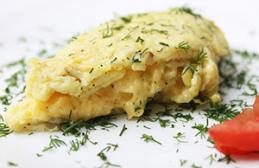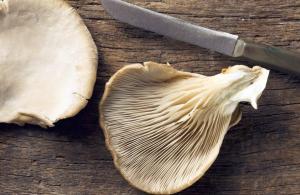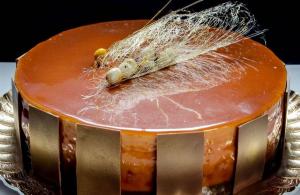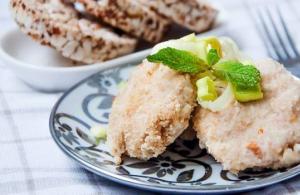During pregnancy, appetite plays dangerous games with a woman. I want to eat something tasty, sweet, spicy, salty. But this is not always beneficial for the development and health of the unborn child. Therefore, a mother must take very seriously what she essentially feeds her baby.
Chocolate for pregnant women: benefit or harm
Chocolate cakes, candies, and chocolate bars are always a weak point for those with a sweet tooth, but sweets do not cause any special prohibitions from doctors. Chocolate, bitter, milk or white, is a delicacy that has more positive qualities than negative ones. But a tasty delicacy also brings with it a number of unpleasant features that people, as a rule, do not pay attention to. To reduce harm when consuming chocolate, doctors still recommend restrictions, especially for expectant mothers. Why shouldn’t pregnant women eat chocolate, even if it is not contraindicated for small children?
Chocolate during pregnancy can pose a threat to the unborn baby
When a pregnant woman wants to eat at least one small piece of candy, it means she won’t be able to hold back the kilogram. A tiny piece of chocolate in the mind of a future mother is several two-hundred-gram bars. If you wanted ice cream, you had to have a bucket. Excessive consumption of sweets can lead to various unpleasant complications, the relatively harmless of which are nausea and vomiting.
All chocolate is a high-calorie product. One chocolate bar contains a fifth of the entire daily diet. Abuse will gradually lead to excess weight. And increased weight leads women to depression, tears, and low self-esteem. And the baby’s mood directly depends on the mother’s mood.
If there is excess fat deposits in the body during pregnancy, it is very difficult to bring yourself back to normal in the postpartum period.
Chocolate bars contain a huge amount of fat. The fats included in the product are not always of high quality. If the desire to consume chocolate in excessive quantities arises every day, the cardiovascular system will definitely rebel, which can affect the development of the unborn child. This is important to know.
Dental caries. No matter how trivial it may sound, ordinary caries can be a provocateur of more serious diseases. And a woman does not need any illnesses during pregnancy. There is no need to indulge in chocolate before bed; it can cause insomnia in pregnant women. A sleep-deprived mother means headache, lethargy, fatigue, irritability, and bad mood. Will a child be comfortable with such a mother?
Eating chocolate can increase heart rate and raise blood pressure.
Caffeine present in the composition causes heartburn and nausea.
When cocoa powder and cocoa butter enter the body, they trigger the release of histamine, which provokes allergic reactions. Therefore, chocolate is a very aggressive allergen that can cause the threat of miscarriage in the early stages of pregnancy or premature birth in later stages in women prone to allergic diseases.
Pregnancy often occurs against the background of chronic cystitis; uncontrolled consumption of chocolate treats can aggravate the course of the disease.
Judicious consumption of chocolate and chocolate products during pregnancy will not lead to serious negative consequences, but it is necessary to control your desires and appetite. Learn to limit the amount of sweets you eat.
Think first of all about the health of the unborn baby.
The taste preferences of women carrying a child are sometimes inexplicable. Very often they are drawn to products that they previously did not like at all. And quite often during pregnancy you want chocolate - and a lot. Is it possible for pregnant women to have chocolate, or is it better to abstain from this delicacy? How much chocolate can you eat during pregnancy, and what types of this dessert are most acceptable?
Every woman, in order to give birth to a healthy child, must eat properly. This applies even to completely healthy women who have never suffered from pathologies of the gastrointestinal tract, especially those who cannot boast of ideal health.
As a rule, in the first trimester of pregnancy, a woman’s diet may remain unchanged, but from the fourth month you will have to choose between healthy nutrition and what you like best.
In addition, there is a danger that, having fed the baby, you will not be able to give birth to him yourself, and doctors will have to resort to a last resort - a caesarean section. “Eating for two” means eating in such a way that your baby gets all the necessary nutrients and vitamins, and he can only take them from your body.
Chocolate for pregnant women: pros and cons
Carbohydrates are a source of energy necessary for metabolism and stimulate the functioning of the nervous system. A lack of carbohydrates leads to the body beginning to consume fats and proteins, which can cause various disturbances in the development of the unborn child. However, an excess of carbohydrates is just as harmful as its deficiency: it causes fluid retention in the body and leads to weight gain in the mother. Also, with an excess of carbohydrates, the fetus becomes very large, which can lead to trauma during childbirth. Therefore, it is very important to ensure that the diet includes the optimal amount of carbohydrate-rich foods: no more than 300-400 g per day. You should especially monitor your diet in the second half of pregnancy, when a woman becomes less active and spends less energy.
Is it possible to eat chocolate during pregnancy? According to nutritionists, what is more beneficial or harmful from this product? Chocolate is not at all harmful for pregnant women, so doctors recommend not to stop eating it while pregnant. It helps cope with the stress that pregnant women are so susceptible to. In addition, chocolate is also beneficial for the unborn baby. Thus, Finnish scientists claim that children whose mothers regularly ate chocolate during pregnancy grow up cheerful and smile more often.

Theobromine contained in chocolate and cocoa in small doses has a stimulating effect on the cardiovascular and nervous systems, so chocolate has a tonic effect, relieves fatigue, and increases performance. Recently, scientists have found that chocolate during pregnancy and not only during this period brings joy, is a kind of “elixir of happiness” that helps lift your mood and feel a slight euphoria. Also, oddly enough, chocolate treats tooth decay (however, the sugar contained in chocolate bars certainly nullifies this property).
When the famous Swedish naturalist Carl Linnaeus was looking for a Latin name for the cocoa tree, he called it “cacao theobroma.” Well, “cocoa” here is a corruption of the Indian name for the cacahual tree, from the fruits of which they made chocolatl, and “theobroma” is translated from Latin as “food of the gods.”

American scientists have noticed that women who consume chocolate during pregnancy not only have a good pregnancy, but their children are also born more active, laugh a lot and interact with the outside world with pleasure. Their Finnish colleagues made similar conclusions, suggesting that women relieve stress with chocolate. When studying already six-month-old children of such mothers, it turned out that the main difference between these babies and the babies in the control group, whose mothers did not eat chocolate during pregnancy, was their almost always good mood. They laughed more often and were less frightened by foreign surroundings than the children compared to them. And although there are also opinions that dispute these conclusions, believing that such effects are more associated with psychological factors than with the consumption of chocolate, nevertheless, chocolate during pregnancy is not only a high-calorie product, which is why it is limited, but also an effective “sweet” anti-stress remedy.
However, despite all the beneficial properties, you should not get too carried away with chocolate: eating 30–60 g per day is quite enough.
Chocolate during pregnancy has no categorical contraindications. The only thing is that it should not be abused. A lot of chocolate during pregnancy, as in any other period, does not bode well. It is better to choose a black tile, it is much healthier than milk or white. However, dark chocolate should be eaten with caution during pregnancy due to its higher caffeine content.

So, the answer to the question “can pregnant women eat chocolate” is obvious - yes, they can. First of all, it brings joy. Pregnant women often experience mood swings, and chocolate can greatly help stabilize them. Secondly, chocolate can strengthen the immune system due to its flavonoid content.
In addition, chocolate contains iron and magnesium, which have a beneficial effect on the development of the baby and the well-being of the expectant mother. Of course, chocolate should be consumed in moderation. Then its benefits for blood pressure will be undeniable. After all, chocolate dilates blood vessels and relaxes muscles. And high blood pressure during pregnancy threatens with such a complication as preeclampsia in pregnant women. So chocolate will help avoid it.
And thanks to the content of a substance such as theobromine, chocolate stimulates the heart, relaxes smooth muscles, and maintains stable blood pressure. Speaking about moderation, it means that chocolate can also have negative consequences if you don’t know the limits. It must be remembered that it contains caffeine, which negatively affects the health of mother and baby. In addition, large amounts of chocolate can provoke or worsen existing heartburn during pregnancy.
Chocolate can cause harm during pregnancy only if consumed excessively - in this case, blood flow to the uterus may decrease, causing the fetus to be deprived of normal nutrition and sufficient oxygen supply.

Of course, dark chocolate is the healthiest, so it is better to choose it over your favorite candies that are high in sugar and fat. If you really want to pamper yourself during pregnancy, you can drink a cup of hot chocolate. But again - not often and not in liters.
When is eating chocolate harmful for an expectant mother? Women with a history of chronic kidney disease (especially urolithiasis) should not eat chocolate due to its high oxalate content. Excess body weight and diabetes are contraindications for eating chocolate because it contains large amounts of sugar. If a pregnant woman has digestive problems (flatulence, heartburn), she should also give up this delicacy for a while. If the expectant mother is prone to allergic reactions, it is better to pamper herself with less allergenic products.
Having learned about all the pros and cons of chocolate during pregnancy, it is important to have an idea of which dessert is most beneficial.
Dark chocolate during pregnancy: can pregnant women have dark chocolate?
Above, you already found out whether dark chocolate is ok for pregnant women: yes, this product is not harmful - on the contrary, since it contains cocoa butter (thanks to the antioxidants it contains, it protects against cardiovascular diseases and cancer).

If you still doubt whether dark chocolate is ok for pregnant women, read about its effects on the body, and all doubts about this will disappear.
1. Dark chocolate lifts your mood and relieves stress. Cocoa beans contain magnesium, which has a positive effect on the immune system, memory, and nervous system. It relieves stress and anxiety, helps overcome depression;
2. Stimulates brain activity. Caffeine and theotrombin included in the treat are useful when you need to concentrate and enhance mental activity;
4. Dark chocolate, due to its high content of fluoride, calcium, and tannins, prevents the formation of plaque and has an antibacterial effect on the body. Cocoa butter coats the teeth, which is why consuming dark chocolate is much healthier than a milk bar or brownie;
5. Tryptophan has an analgesic effect and enhances the antidepressant properties of chocolate.
Can pregnant women have hot, white and milk chocolate?
Can pregnant women have hot chocolate and cocoa drinks? Cocoa improves your mood due to the production of serotonin, the “happiness hormone,” so a cup of cocoa with milk or cream in the morning won’t hurt! And hot chocolate is a real pleasure, and also increases performance (thanks to caffeine). Cocoa has many beneficial properties: improves brain and heart function, is a strong antioxidant, contains vitamins (A, E, PP, group B, beta-carotene), minerals (calcium, magnesium, sodium, potassium, phosphorus, chlorine, sulfur, iron , zinc, etc.). To fully provide your body with zinc, for example, you can drink a couple of cups of cocoa a week and eat 2 - 3 slices of high-quality dark chocolate (70% cocoa) per day. So if pregnant women want hot chocolate or cocoa, don’t worry and get maximum joy, then it will benefit both them and the baby. But, as in any other business, you cannot exaggerate and abuse.

As for white chocolate during pregnancy, the real product is exquisite and quite expensive, almost never found on the shelves of modern stores. In most cases, in its production, cocoa butter is replaced by vegetable oil and hydrogenated fat. This chocolate is poor in nutrients, but rich in fats and simple carbohydrates.

Can pregnant women have milk chocolate and how healthy is it? This product does not have as many benefits as black, since its cocoa content is lower, and fats and sugar reduce its benefits to zero. This is a high-calorie product, the abuse of which is contraindicated for heart and vascular diseases, as well as for overweight. But at the same time, it is an excellent antidepressant.
Now you know what kind of chocolate is safe for pregnant women, which means you can enjoy this delicious dessert without fear.
Why can't you eat a lot of chocolate during pregnancy?
Why can’t you eat a lot of chocolate during pregnancy and, in general, why is it not recommended to abuse this product?
It makes you gain weight quickly. Milk chocolate is especially high in calories due to its milk and glucose content.
It is better not to consume dark chocolate in the evening. It contains caffeine, which can negatively affect the quality of sleep, and healthy sleep is important for a pregnant woman.
Pregnant women should not eat too much chocolate, as this delicious delicacy, in addition to its many beneficial properties, is a strong allergen.
In addition to useful substances, chocolate contains about 300 that have not yet been studied by science.
Many manufacturers replace cocoa butter with hydrogenated fats and other vegetable oils, especially for chocolates and milk chocolate. As a result, there is no benefit from such a product, only calories.
There is an opinion that due to the content of narcotic substances in chocolate, it is addictive. Indeed, it contains theotrombin, which in large quantities causes such reactions in the body. But its content in chocolate is so small that you will have to eat 0.5 kilos of it for several weeks before the effect begins to take effect.
I want chocolate during pregnancy: what to replace it with?
How can you replace chocolate during pregnancy if this product is not recommended for you for some reason? Some will advise you to replace chocolate with honey, others with fruit. Yes, these products taste sweet, but they have absolutely nothing to do with chocolate! It is impossible to replace the taste of cocoa beans with regular sugar or glucose. Fortunately, there are substitutes that are closest to the product loved by many. If you want chocolate, you can eat one of these.
Carob (carob)

A species of evergreen shrub or tree of the legume family, called carob, native to the Mediterranean. The pods of this plant contain sweet and juicy pulp. It is from it that a product that can replace cocoa is made. It's called carob. The sweet brown powder tastes very much like cocoa, but has some peculiarities. Carob is not as aromatic as its counterpart, but is sweeter. The shade of this powder is slightly lighter than that of real cocoa. Carob contains a large number of useful elements: vitamins and minerals. In particular, it contains vitamins such as A, B, B2, B3 and D, as well as protein (8% of the total mass). The composition of carob is also rich in other substances: calcium, potassium, magnesium, phosphorus, copper, iron, nickel, manganese and barium. All elements in this product are in an easily digestible form. Carob is sold in powder form, which can be added to various sweets when cooked, so you can make homemade chocolates. It's both tasty and healthy. Carob can also be included in dietary sweets and bars. Such products can often be purchased at a pharmacy or health and diabetic food store.
Chocolate spray

A device called the “Chocolate Inhale” was invented by scientists from Harvard. It is a small inhaler filled with small particles of cocoa mixture. These particles are not able to enter the lungs, as a special nozzle protects them. After two inhalations, a chocolate taste appears in the mouth. Experts advise alternating foods and eating a spoonful of yogurt first, and inhaling particles of cocoa mixture as a “snack” - in the end you will be able to taste real chocolate mousse, but without sugar and extra calories.
Fructose chocolate

If the phrase “I eat a lot of chocolate” sounds like you, then you should not eliminate the problem, as this will lead to a bad mood and irritation, but try to make it harmless. Diet chocolate made with water and fructose can be delicious too! You can buy several types of these chocolates in health food stores. The main advantage of fructose chocolate is the presence of cocoa, which is not replaced with anything. It is clear that the absence of sugar and milk will make the taste somewhat different, but this product is preferred by many who have given up regular chocolate. A little chocolate with fructose and water, closest to the original, will make you happier.
Chocolate during early and late pregnancy: how much chocolate can pregnant women eat?
Every expectant mother must clearly understand that any product she consumes in large quantities can, in one way or another, harm her health and, accordingly, the health of her baby. That is why it is appropriate to talk about a sense of proportion here. Especially when it comes to chocolate, which contains components that can affect blood circulation and the nervous system, as well as sugar and carbohydrates, which are far from healthy calories.

Is chocolate allowed for pregnant women in the early stages, and in what quantities? You can enjoy chocolate in the early stages of pregnancy. The average daily intake for an adult is 20-30 g per day. Those. per week you can, without risking anything, eat, in portions, a hundred-gram bar of dark chocolate.
In later stages of pregnancy, it is better to reduce its consumption. Not without, of course, occasionally enjoying a small piece, but no more.
Many doctors do not recommend chocolate during late pregnancy due to the fact that it contains caffeine, which can change the quality of the child’s sleep.
Chocolate is a favorite product of pregnant women. Very often, the expectant mother is drawn to sweets, and milk bars are consumed at an uncontrollable pace.
Nutritionists and doctors have nothing against eating chocolate, however, they insist on observing reasonable dosages and restrictions. This is especially true for women with allergies, as well as pregnant women who have gastrointestinal diseases and endocrine system disorders.
On the other hand, in some cases, sweetness can have a healing effect and support a woman in her difficult situation.
Composition and types of chocolate
A rich confectionery product made from cocoa beans or cocoa powder with the addition of butter. Depending on the concentration of cocoa, chocolate is divided into the following types:
- black – 70-80% powder (good indicator);
- milk – 30-50% cocoa beans;
- white – 0% cocoa.
Dark chocolate contains virtually no cocoa butter, so the bitter taste is achieved through a combination of sugar and powder. A third of the milk bar consists of fast carbohydrates - sugars, and 15% of dry cream or high-fat milk, which does not make it a healthy sweet during pregnancy. White chocolate has nothing in common with classic chocolate, as it consists exclusively of milk powder and cream, fats, sugars, vanillin and flavor enhancers.
Classic dark or milk chocolate contains the following components in varying proportions:
- proteins – up to 8%;
- saturated fats of plant and animal origin – up to 40%;
- carbohydrates (mainly sugars) – about 6%;
- alkaloids (caffeine, well-known to everyone, as well as theobromine);
- tannins;
- tryptophan;
- anandamide;
- phenylethylamine;
- microelements (magnesium, iron, calcium, phosphorus, sodium and others);
- B vitamins and others;
- organic acids;
- flavonoids.
If we talk about the benefits of chocolate during pregnancy, then each type should be ranked depending on its properties.
- White chocolate. Does not contain cocoa, which demonstrates beneficial properties for the body. To obtain a characteristic taste and pleasant appearance, dyes, thickeners, preservatives, flavor enhancers and sweeteners are used. Sugars and fats negatively affect the body of the expectant mother, lead to blockage of blood vessels with cholesterol and waste, and inhibit digestion.
- Lactic. This type contains a sufficient amount of cocoa powder, making it a healthy treat during pregnancy. Of course, you should follow the dosage and not get carried away with filling options, because the same dyes, flavor enhancers and other chemicals are used to create a rich taste.
- Black. Despite the bitterness, such chocolate has been and always remains the most healthy confectionery product. It contains practically no sugar and fat, has a low calorie content, so it can be used for therapeutic and dietary nutrition. A few squares of treats help mom out on a long journey, as they perfectly satisfy the feeling of hunger and charge the body with energy. Of course, doctors do not advise consuming more than 30 g due to the high caffeine content.
- Hot. Mainly sold in soft packs and sticks in the form of soluble powder. There is nothing healthy in the drink - the cocoa content is negligible, but there is a high proportion of sugars, fats and dry ingredients. If you want a hot drink, then prepare it yourself (for 1 glass of boiling milk, take 2 teaspoons of cocoa and sugar).
The positive properties of the confectionery product are due to its composition.

- Tryptophan is involved in the secretion of happiness hormones - phenylethylamine and serotonin. They improve mood, improve the general condition of the body, help overcome depression, irritability, nervousness, anxiety and insomnia.
- Theobromine stimulates contractions of the heart muscle, which affects normal blood flow through the placental circle to the baby. The component also provides relaxation of the muscular system, thereby eliminating spasms (headaches, dental pain, intestinal colic). Theobromine gradually dilates blood vessels, which regulates blood circulation and helps lower blood pressure. That is, eating chocolate is a prevention of hypertensive conditions (hypertension, eclampsia and preeclampsia). Theobromine’s “competence” also includes irritating the nerve fibers inside the kidneys, which leads to their self-cleaning and removal of excess fluid. That is, we can say with confidence that chocolate helps reduce swelling.
- Iron is involved in the transport of oxygen to tissues and cells, increases the level of hemoglobin and red blood cells, which is important for the expectant mother. Chocolate can prevent the development of anemia in pregnant women.
- Magnesium ensures the development and strengthening of the child’s nervous system and lays the foundation for brain cells. For a pregnant woman, the microelement is also important, as it increases concentration and productivity, and reduces the manifestations of stress.
- Flavonoids, as natural antioxidants, prevent cell oxidation, thereby prolonging their life and youth. They also fight radionuclides, toxins and pathogenic microflora, strengthening the immunity of mother and baby.
- Caffeine in reasonable dosages (up to 150 mg per day) is not only harmless, but also beneficial. It mobilizes the body's reserves, relieves chronic fatigue and lethargy, and loss of strength.
- Calcium ensures the formation of the child’s skeleton, supports and strengthens the bone and cartilage tissue of the pregnant woman. It also prevents the leaching of beneficial components from the enamel, which often leads to crumbling teeth in pregnant women.
The negative impact of the sweet product is due to the following properties.

- Chocolate is not a natural substance, but is obtained artificially through the processing of cocoa beans, fats, oils, milk powder and sugar. It’s difficult to call it dietary.
- Caffeine abuse leads to overstimulation of the nervous system, resulting in worsening pregnancy problems: nervousness, anxiety, irritability, mood swings. Frequent consumption of chocolate in the evening negatively affects the quality and duration of sleep.
- In large doses, chocolate affects blood circulation, disrupts blood flow to the pelvic area, which can cause fetal hypoxia.
- Treats in a volume of more than 30 g per day increase heartburn, increase stomach acidity and can cause exacerbation of ulcers, gastritis and colitis.
- Chocolate belongs to the category of strong food allergens that cause an acute reaction, including angioedema. In addition, abuse of the product can lead to a congenital allergy to cocoa products in the baby and the appearance of atopic dermatitis. A side effect is that cocoa removes histamine from the body, which helps fight allergies.
- Due to its high sugar content, chocolate should not be consumed by women with impaired glucose tolerance.
Strict contraindications for use:
- diseases of the gastrointestinal tract and kidneys (including urolithiasis and kidney stones);
- hypotension;
- diabetes mellitus or gestational diabetes;
- allergy to cocoa products;
- pathologies or complications of pregnancy;
- eating disorders (nausea, heartburn, flatulence);
- chronic insomnia;
- obesity of the first and second degree.
In other cases, a pregnant woman can afford a few squares of natural chocolate, which will only benefit her and the baby. 20-30 g of treats are enough to improve mood, get rid of chronic fatigue and ensure the normal formation of the child’s central nervous system.
Video: the benefits and harms of chocolate
It’s not so easy to find a woman who would answer the question “Do you like chocolate?” answered negatively. Bitter black, delicate milky, sweet white, and even with nuts, prunes, raisins, dried apricots... well, how can you resist the desire to eat another piece? But with the onset of pregnancy, it suddenly turns out that you can no longer enjoy your favorite chocolate as before, and not only because of the threat of extra centimeters in the hips and waist.
Briefly about chocolate
Chocolate is a confectionery product based on cocoa butter - butter obtained from the seeds of the chocolate tree - cocoa beans.Now this product is an integral piece of the culinary puzzle; it is added to almost all types of sweets and desserts: candies, bars, ice cream, muffins, cakes, cookies, mousses, puddings, cocktails, hot drinks - and the list does not even pretend to be complete.
Central and South America are considered the birthplace of chocolate. The prototype of modern hot chocolate was known to the Mayans and Aztecs, who combined roasted finely ground cocoa beans with water, seasoned it with hot pepper and drank it cold. The chocolate drink became known to Europe in the 1520s, and from bitter and cold, by the beginning of the 17th century, it gradually turned into sweet and hot.
The modern “chocolate” period began thanks to the Dutchman Conrad van Houten, who in 1828 patented a simple method for squeezing cocoa butter from grated beans. Thanks to his discovery, the creation of solid chocolate became possible. The first chocolate mass was produced by the Frenchman Jean Pietre, and a year later the first bar was produced by London confectioners.
Useful properties of chocolate
Everyone loves chocolate. At the beginning of the 19th century, it was sold in pharmacies as a means to give vigor and strength, and in a series of books about the famous bespectacled man, chocolate was used as a medicine after an encounter with dementors. Not surprising, because this sweetness causes the release of happiness hormones into the blood and lifts your mood. Depending on the amount of cocoa powder and cocoa butter included, chocolate can be:
Depending on the amount of cocoa powder and cocoa butter included, chocolate can be:
Black – 50-50% cocoa, 5% cocoa butter;
- milk – about 30% powder, 15% cocoa butter;
- white – 0% cocoa, 20% or more cocoa butter.
Chocolate can become one of the sources of substances beneficial to the body, as it contains:
Vitamins – PP, E, B2, B1;
- minerals – Mg, Fe, Ph, K, Ca.
In addition, chocolate is rich in tryptophan, phenylethiolamine, anandamide, organic acids, flavonoids, oxylates and caffeine - a substance whose harms and benefits are still being debated.
Chocolate in a woman’s diet during pregnancy
Chocolate in the diet of an expectant mother can be called a necessary rather than a harmful product. It contains tryptophan - a substance that forms phenylethylamine and serotonin - the “happiness hormone” in the female body. Their production is necessary to combat stress and maintain the immune system. During pregnancy, this plays a special role, since the body is constantly restructuring, and the immune system is more vulnerable. Flavonoids have a beneficial effect on the functioning of the heart and cardiovascular system. They belong to the group of powerful antioxidants - substances that bind free radicals, remove toxins and slow down cell aging. Flavonoids also prevent thrombosis by reducing the number of atherosclerotic plaques on the walls of blood vessels.
Flavonoids have a beneficial effect on the functioning of the heart and cardiovascular system. They belong to the group of powerful antioxidants - substances that bind free radicals, remove toxins and slow down cell aging. Flavonoids also prevent thrombosis by reducing the number of atherosclerotic plaques on the walls of blood vessels.
Theobromine also improves heart function, and also helps relax smooth muscles and dilate blood vessels. For this reason, chocolate will be useful for hypotensive patients, and it should be consumed in very measured doses by women with a tendency to increase blood pressure.
 The disease caused by a lack of iron is called anemia, and is fraught with many complications for pregnancy: the fetus, its developmental delay, intrauterine death and, as a consequence, and.
The disease caused by a lack of iron is called anemia, and is fraught with many complications for pregnancy: the fetus, its developmental delay, intrauterine death and, as a consequence, and.
Chocolate contains a lot of magnesium. 100 grams of this delicacy will cover a third of the daily requirement for macronutrients. Magnesium is necessary for normal brain function of the expectant mother and for proper brain development in the fetus.
If you want chocolate during pregnancy, you may not have enough magnesium. It can also be found in seaweed, legumes and some cereals.
There is not much phosphorus and calcium in chocolate, but without these macroelements, a pregnant woman’s nails begin to break, hair falls out, skin condition worsens, teeth deteriorate, and bones become more fragile. Without phosphorus and calcium, it is impossible to build a skeleton in an unborn child.
Science and chocolate during pregnancy
Another scientific fact speaks in favor of chocolate in the daily diet of a woman in an “interesting” position. It has been proven to significantly reduce the risk of preeclampsia, a late-onset toxicosis in pregnant women characterized by nausea, headaches, blurred vision, abdominal pain and diarrhea. A team of researchers led by Elizabeth Trich, PhD, of Yale University (New Haven, Connecticut, USA) studied the medical records of almost 2,300 women with their first pregnancies, asked them to answer a question about the amount of chocolate they ate per week, and checked the levels of theobromine in the umbilical cord blood of their babies.
A team of researchers led by Elizabeth Trich, PhD, of Yale University (New Haven, Connecticut, USA) studied the medical records of almost 2,300 women with their first pregnancies, asked them to answer a question about the amount of chocolate they ate per week, and checked the levels of theobromine in the umbilical cord blood of their babies.
It turned out that in cases where women ate chocolate every day, the level of theobromine in the umbilical cord blood was very high, and the risk of development was reduced by as much as 69%. Pregnant women who ate 5 servings of chocolate per week in the last trimester were 40% less likely to develop preeclampsia than those who ate chocolate no more than once a week.
Why is chocolate harmful during pregnancy?
Despite all its usefulness, chocolate is a very high-calorie product. One 100-gram bar contains 539 kcal, which is 38% of the daily value. Therefore, even women with normal weight should not consume more than 15-20 g per day, which is approximately one or two strips of tiles.In addition, dark dark chocolate contains a lot of caffeine, a substance prohibited during pregnancy. Caffeine increases heart rate and blood pressure, and can also cause miscarriage or early labor.
 White chocolate, which contains no cocoa powder at all, will also not be a solution. The fact is that instead of cocoa butter, hydrogenated fats with similar properties and composition are often added to it, which have a harmful ability to increase the level of “bad” cholesterol in the blood and clog the body with carcinogens.
White chocolate, which contains no cocoa powder at all, will also not be a solution. The fact is that instead of cocoa butter, hydrogenated fats with similar properties and composition are often added to it, which have a harmful ability to increase the level of “bad” cholesterol in the blood and clog the body with carcinogens.
Due to the large amount of oxalates contained in cocoa products, they are not recommended for women with chronic kidney disease, and especially with urolithiasis.
Chocolate products contain substances that release histamine from the body's cells, thereby suppressing the immune system's response to. And chocolate itself is a fairly strong allergen, so its presence in a pregnant woman’s diet puts not only the mother’s body at risk, but also the fetus.
Excess chocolate due to vasoconstriction reduces blood flow to the uterus, causing the baby to receive less oxygen and nutrients.
What kind of chocolate can pregnant women eat?
 The name “chocolate” is most suitable for black and bitter chocolate. Compared to other types, it has the least amount of fat and sugar. During pregnancy, dark chocolate perfectly lowers blood pressure and increases the body's performance. But it also contains more caffeine. By the way, the presence of a dark coating on chocolate is not a defect, but evidence that it actually contains cocoa butter; the product was simply kept warm.
The name “chocolate” is most suitable for black and bitter chocolate. Compared to other types, it has the least amount of fat and sugar. During pregnancy, dark chocolate perfectly lowers blood pressure and increases the body's performance. But it also contains more caffeine. By the way, the presence of a dark coating on chocolate is not a defect, but evidence that it actually contains cocoa butter; the product was simply kept warm. Milk chocolate is less healthy because it contains little cocoa, a lot of milk powder, fats and sugar. Although it copes well with depression, it is not recommended for heart and vascular diseases.
White chocolate, which is abundant on supermarket shelves, is generally prohibited during pregnancy. There are practically no useful substances in it, there is almost no cocoa butter either - it is replaced with soy or hydrogenated fats.
If chocolate is your favorite treat, you shouldn’t completely deny yourself its consumption during pregnancy. The main thing is to observe moderation: a bar of good dark chocolate for a week will be enough.









